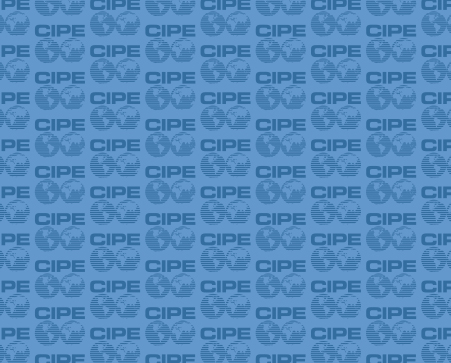
If you look past the news reports that conjecture Iraq is destined for failure and into the places where Iraqi private sector leaders and policymakers are convening to discuss policy, I wonder if it could be said that Iraq is doing relatively better with the task of building a democracy than say, France in its early days. When the French Revolution ended in 1799, the French were sure that never again would they live under an absolute monarchy that ignored their inalienable rights. Yet France still saw the rise of a dictator, two restorations of the monarchy, and two more revolutions. It wasn’t until 1958 that the France we know now was established as a democracy. With a world of stakeholders and a world of history from which to draw lessons behind them, Iraqi leaders might actually have a democratic advantage.
As U.S. combat troops return home, Iraqis sense a shifting political system where they can actually have a say and are today coming together as doctors, professors and entrepreneurs to advocate for necessary changes. With the support of countless international organizations and freedom from a dictator, citizens of Iraq that are experts in their own field are not only advocating but educating the Iraqi politicians who before weren’t familiar of issues facing their people.
Public-private dialogue is a crucial component of CIPE’s programs in Iraq, especially through the development of Provincial Business Agendas. Through business agendas, private sector representatives within each province present challenges and solutions to local policymakers. So far CIPE has supported the development of four agendas, strengthening public-private dialogue in Anbar, Basrah, the Kurdish region, and Najaf.
It’s nearly impossible for a policymaker in any country to know how every piece of legislation affects their constituencies. Politicians in the developed world rely on think tanks, associations, interest groups, lobbyists, and activists to educate and advise them. In less developed countries, authoritarianism and centralism persist, and laws are made based on personal interests, rather than public welfare. Now for the first time in Iraq, lawmakers are thinking to ask doctors how to deal with healthcare, professors how to deal with education, and the private sector how to deal with trade or banking.
Basrah, the southernmost province of Iraq, faces unique challenges as the only part of Iraq with ports. On July 24th, Basrah business leaders, both men and women, presented their Provincial Business Agenda to the Governor of Basrah, Dr. Shiltag Abood. The provincial government overwhelmingly praised the agenda, indicating that public-private dialogue in Basrah province is not only viewed as flourishing but essential. Days after the presentation, the Basrah government even featured the ceremony on their website, a testament to the level of seriousness the document is being taken by government officials.
France and Iraq share a history of decades of authoritarianism. Thanks to earlier experiences of trial and error in democracy formation and two centuries of it being tweaked in France and around the world, Iraq has a worldwide history of missteps and setbacks as well as successes from which to learn and adapt locally. Of course we are hoping we don’t see an Iraqi Napoleon, or restoration of the Ba’athist regime, but so soon into the development of their democracy Iraqis have at a grassroots level begun holding their elected officials accountable. Seven years after disposing of a tyrant, could France say the same?
Published Date: August 23, 2010